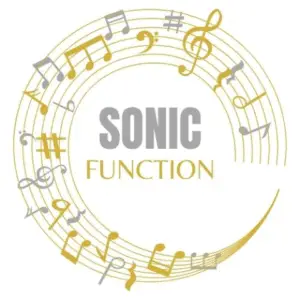
When it comes to practicing the piano, some believe that practicing for long hours each day is the key to success, others argue that excessive practice can lead to injury, burnout, and even depression.
While practicing for long hours can be beneficial, it is important to measure progress regularly and adjust practice time accordingly. Effective practice techniques can also help maximize the benefits of each practice session. But, just how much piano practice is too much?
In this article, I will explore the potential risks of excessive practice, the influence of piano type on practice, and the role of parents in practice. I’ll also answer frequently asked questions about piano practice and provide practical tips for finding the right balance between practice and rest.
Key Takeaways
- Finding the right balance between practice and rest is crucial for pianists looking to improve their skills.
- Effective practice techniques can help maximize the benefits of each practice session.
- Excessive practice can lead to injury, burnout, and even depression.
Table of Contents
Understanding Piano Practice
Practice is an essential part of learning to play the piano. It involves repetition of exercises, scales, and pieces to improve one’s skills.
However, not all time spent at the piano is considered practice. For example, playing for fun or sight-reading new pieces is not necessarily practice.
To be considered practice, the pianist must focus on specific aspects of playing and work to improve them.
The Role of a Piano Teacher
A piano teacher can be an invaluable resource for a pianist looking to improve their skills. They can provide guidance on technique, offer feedback on performance, and help set goals for practice sessions. A teacher can also help keep the pianist accountable and motivated to continue practicing.
The Importance of Goals
Goals should be specific, measurable, achievable, relevant, and time-bound. For example, a goal could be to learn a new piece by a certain date or to improve a specific aspect of technique. Having clear goals can help the pianist stay focused during practice sessions and track their progress over time.
How to Measure Progress When Practicing Piano
Tracking progress can help you stay motivated and focused on your goals. Here are some tips on how to measure your progress effectively:
Tracking Improvement
One of the simplest ways to track your progress is to keep a practice journal. In your journal, you can record the amount of time you spend practicing, the exercises you work on, and any challenges you encounter. This will help you identify areas where you are making progress and areas where you need to focus more attention.
Another way to track your progress is to record yourself playing. This can be done on a smartphone or tablet, or with a video camera. By watching and listening to your recordings, you can identify areas where you need to improve, as well as areas where you are making progress.
Common Mistakes
When measuring progress, it is important to avoid some common mistakes. One mistake is to focus too much on the amount of time spent practicing, rather than the quality of the practice. It is better to practice for shorter periods with focus and intention than to practice for long periods without focus.
Another mistake is to compare yourself to others. Everyone progresses at their own pace, and comparing yourself to others can be discouraging. Instead, focus on your own progress and celebrate your achievements.
Finally, it is important to remember that progress is not always linear. There may be times when you feel like you are not making progress, but it is important to stay committed and continue practicing. With time and dedication, you will see improvement in your skills.
The Balance Between Practice and Rest
To become a proficient pianist, one must practice regularly. However, it is essential to maintain a balance between practice and rest. Over-practicing can lead to fatigue, burn out, and physical injury. Therefore, it is crucial to know when to take breaks and how much practice is too much.
Signs of Over-practicing
It is essential to recognize the signs of over-practicing to avoid burnout and injury. Here are some common signs of over-practicing:
- Soreness and pain in the hands and fingers
- Loss of motivation and enjoyment in playing the piano
- Difficulty concentrating and focusing during practice sessions
- Decreased performance and progress despite increased practice time
Importance of Breaks
It is recommended to take a 5-10 minute break every 30-45 minutes of practice. During the break, it is essential to stretch and move around to prevent stiffness and tension in the muscles.
Additionally, taking a day or two off from practice each week is also essential for rest and recovery. This break allows the body to recover and repair any damage caused by over-practicing.
Potential Risks of Excessive Practice
Excessive practice can lead to physical and mental fatigue, and even injuries. While practicing is crucial for improving one’s piano skills, it is important to maintain a balance and avoid overdoing it.
Physical Injuries
When practicing for extended periods, pianists may experience joint damage, muscle strain, and other physical injuries.
Repetitive strain injuries (RSIs) are a common type of injury that can result from excessive piano practice. RSIs can cause pain, numbness, and weakness in the hands, wrists, and arms.
To avoid physical injuries, pianists should take breaks during practice sessions, stretch regularly, and practice proper posture. It is also important to warm up before playing and to gradually increase the intensity and duration of practice sessions.

Mental Fatigue
Excessive practice can also lead to mental fatigue, which can negatively impact a pianist’s performance.
Mental fatigue can cause difficulty concentrating, memory problems, and reduced motivation.
Pianists may also experience burnout, which can lead to feelings of frustration and a lack of interest in playing.
To avoid mental fatigue, pianists should take breaks and practice in shorter sessions. It is also important to vary the types of practice activities to keep things interesting and engaging.
Additionally, getting enough rest, eating a healthy diet, and staying hydrated can help prevent mental fatigue.
Effective Piano Practice Techniques
When it comes to practicing piano, it’s not about the amount of time spent, but rather the quality of the practice session.
Effective practice techniques involve a structured and systematic approach that helps pianists achieve their goals efficiently.
Deliberate Practice
Deliberate practice is a process of breaking down a complex skill into smaller parts and then focusing on improving each part. It involves setting specific goals and practicing with a purpose.
This technique requires a lot of focus and concentration, and it can be mentally exhausting, but it’s one of the most effective ways to improve skills. To implement deliberate practice, pianists should:
- Set specific goals for each practice session
- Focus on one skill at a time
- Practice slowly and accurately
- Analyze mistakes and find ways to correct them
- Use a metronome to improve timing
- Incorporate repetition and variation to reinforce muscle memory
Problem Solving in Practice
Problem-solving in practice involves identifying and solving problems that arise during practice sessions. It’s essential to address problems as they arise to prevent them from becoming ingrained in muscle memory.
This technique involves a systematic approach to identifying and solving problems. To implement problem-solving in practice, pianists should:
- Identify the problem
- Analyze the cause of the problem
- Develop a plan to solve the problem
- Implement the plan
- Evaluate the effectiveness of the solution
Effective practice methods involve a systematic and structured approach to practice sessions. By using deliberate practice and problem-solving techniques, pianists can make significant progress in their skills and achieve their goals efficiently.
Influence of Piano Type on Practice
Acoustic vs Digital Pianos
The type of piano used for practice can have a significant impact on the overall experience and effectiveness of the practice. Acoustic pianos are traditional instruments that are known for their rich and complex sound, while digital pianos offer a wide range of features and capabilities that are not available on acoustic pianos.
One advantage of acoustic pianos is that they offer a more authentic playing experience. The keys on an acoustic piano are weighted, which means that they respond to the player’s touch in a way that is similar to a real piano. This can help players develop a more nuanced and expressive playing style.
On the other hand, digital pianos offer a number of advantages that can make them a better choice for some players. For example, digital pianos are often more affordable than acoustic pianos, and they are also more portable and easier to maintain.
Additionally, digital pianos or MIDI pianos can be used with headphones, which makes them a great option for players who need to practice in a shared space or at night.
Choosing the Right Instrument
When it comes to choosing the right piano for practice, there are a number of factors to consider. One of the most important factors is the player’s skill level.
Beginners may be better off starting with a digital piano, as they are more affordable and easier to play. However, more advanced players may prefer the authentic sound and feel of an acoustic piano.
Other factors to consider include the player’s budget, the space available for the instrument, and the player’s musical goals.
For example, if the player is primarily interested in playing classical music, an acoustic piano may be the best option. However, if the player is interested in exploring a wide range of musical styles and experimenting with different sounds, a digital piano may be a better choice.
Role of Parents in Practice
Parents play a crucial role in their child’s piano practice routine. They can provide support, encouragement, and motivation without pressuring their child to overachieve. Additionally, parents can help their child balance their piano practice with other activities to ensure they don’t become overwhelmed or burnt out.
Supporting Without Pressuring
Parents should encourage their child to practice regularly, but not at the cost of their child’s mental or emotional well-being. Pressuring children to practice for long hours or achieve unrealistic goals can lead to burnout and a lack of interest in playing the piano. Instead, parents should provide positive reinforcement and support their child’s progress.
One way parents can support their child is by creating a practice schedule that works for both the child and the family. This schedule should include regular practice times and an adequate amount of time for breaks. Parents can also help their child set achievable goals and celebrate their accomplishments.
Balancing Piano with Other Activities
While piano practice is important, it’s essential to balance it with other activities. Parents should encourage their child to pursue other interests and hobbies, such as sports or art, to prevent burnout and maintain a healthy work-life balance.
Parents can also help their child prioritize their activities and manage their time effectively. This can include creating a schedule that allows for both piano practice and other activities, as well as helping their child set realistic expectations for their progress.
The Musician’s Mindset
Maintaining a Positive Attitude
A musician’s mindset is crucial to their success. Maintaining a positive attitude can help a musician stay motivated, focused, and confident. It is important to remember that progress takes time and that setbacks are a natural part of the learning process.
One way to maintain a positive attitude is to set realistic goals. By setting achievable objectives, a musician can measure their progress and avoid feeling overwhelmed. Additionally, it is important to celebrate small victories along the way. This can help boost confidence and provide motivation to continue practicing.
Another way to maintain a positive attitude is to surround oneself with supportive people. Whether it be friends, family, or a teacher, having a support system can make a big difference in a musician’s mindset.
Dealing with Setbacks
Setbacks are inevitable in any learning process, including learning to play the piano. It is important for a musician to have a plan in place for dealing with setbacks.
One way to deal with setbacks is to take a step back and reassess the situation. It is important to identify the root cause of the setback and develop a plan to address it. This could mean taking a break from practicing, seeking advice from a teacher, or adjusting one’s practice routine.
Another way to deal with setbacks is to maintain a growth mindset. Instead of viewing setbacks as failures, a musician can view them as opportunities for growth and learning. By reframing setbacks in a positive light, a musician can stay motivated and continue to make progress.
Finally, it is important to monitor one’s mental health. Depression and other mental health issues can have a significant impact on a musician’s mindset and ability to practice. If a musician is struggling with their mental health, it is important to seek professional help.

Frequently Asked Questions
How long should a beginner practice piano each day?
The amount of time a beginner should practice piano each day depends on their level. It is not reasonable to expect a brand-new beginner piano student, whether a child or adult, to practice for 30 minutes a day. Beginner piano songs often take one minute or less to play. Therefore, it is recommended that beginners practice for 10-15 minutes a day, gradually increasing their practice time as they become more comfortable with the instrument.
How many hours of piano practice a week are recommended?
Studies show that practicing more than four hours a day is too much. Additional time doesn’t make any difference in your progress, even with deliberate practice. Therefore, it is recommended that piano students practice for a total of 7-10 hours per week, divided into smaller practice sessions of 30-60 minutes each day.
What is the ideal amount of time to practice piano daily?
The ideal amount of time to practice piano daily varies depending on the student’s level and goals. A beginner student should practice for 10-15 minutes a day, while intermediate and advanced students should practice for 30-60 minutes a day. It is important to remember that quality practice is more important than quantity, so it is better to practice for a shorter amount of time with focus and concentration than to practice for a longer period without focus.
Can practicing piano too much be harmful?
Yes, practicing piano too much can be harmful. Results of too much practice can manifest in depression, burnout, and physical injury. Overuse injuries are not only prevalent among professional musicians, but they can also occur from too much practice. Therefore, it is important to balance practice time with rest and recovery time.
Is it possible to over-practice the piano?
Yes, it is possible to over-practice the piano. Over-practicing can lead to physical injury, burnout, and a decrease in motivation. It is important to listen to your body and take breaks when necessary. It is also important to practice with focus and concentration, rather than mindlessly repeating the same passages over and over again.
How much piano practice is enough for noticeable improvement?
The amount of piano practice needed for noticeable improvement varies depending on the student’s level and goals. However, studies have shown that practicing for at least 30 minutes a day can lead to noticeable improvement in as little as four weeks. It is important to remember that consistent practice over time is key to achieving long-term improvement.

